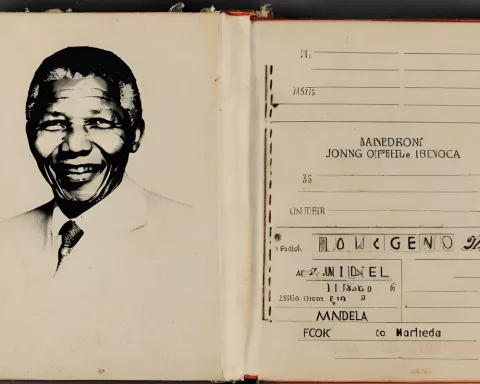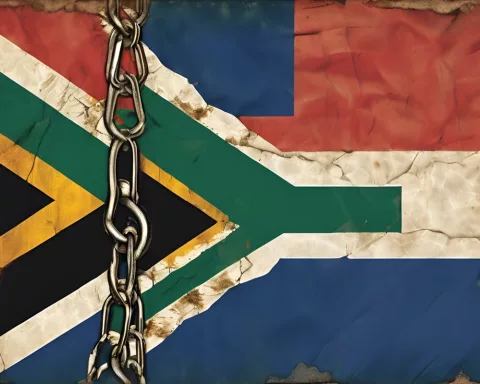South Africa’s Sports, Arts, and Culture Minister, Zizi Kodwa, is championing the rights of musicians and has consulted with the South African Music Rights Organisation (SAMRO) to address exploitation allegations within the industry. The tragic events surrounding the untimely death of South African singer-songwriter, Zahara, have brought exploitation charges to the forefront, highlighting the need for government intervention to protect the livelihoods of musicians. Kodwa’s public endorsement of SAMRO’s investigation into exploitation allegations is a promising shift towards justice within the music industry, but comprehensive measures are needed to address the challenges that musicians face beyond exploitation by record labels.
South Africa’s Sports, Arts, and Culture Minister, Zizi Kodwa, has taken initiative to defend musicians’ rights, consulting with the South African Music Rights Organisation (SAMRO) to address exploitation allegations. The dialogue between Kodwa and SAMRO highlights the tragic events surrounding the untimely demise of South African singer-songwriter, Zahara, and the exploitation she faced. Kodwa’s public backing of the investigation into exploitation allegations hints at a promising shift toward justice within the music industry. The challenges musicians face go beyond exploitation by record labels, and it is vital for the government and organizations like SAMRO to adopt a comprehensive approach to protecting musicians.
Championing Music Rights
South Africa’s Sports, Arts, and Culture Minister, Zizi Kodwa, in a laudable initiative, has stepped forward to defend the rights of musicians. This move comes as a response to the increasing number of exploitation allegations within the music industry. Kodwa has taken the initiative to consult directly with the South African Music Rights Organisation (SAMRO), aiming to shield the musicians’ means of living.
The minister’s discussion with SAMRO, revealed on December 13, 2023, underscores Kodwa’s dedication to challenging the established order within the industry. Kodwa, in his statement, emphasized his urging of SAMRO to safeguard the welfare of musicians. Further, he extended his endorsement and backing for SAMRO’s ongoing probe into allegations around exploitation of musicians by record labels.
The Zahara Case: Spotlighting Music Industry Exploitation
The dialogue between Kodwa and SAMRO brings into sharp relief the tragic events surrounding South African singer-songwriter Bulelwa Mtukukana, professionally known as Zahara. Zahara’s untimely demise on December 11, 2023, at the tender age of 36 following a coma, thrust the music business into the public eye.
Zahara, who carved an impressive legacy with her breakthrough album “Loliwe” in 2011, had publicly voiced her discontent with the industry multiple times. Despite her album’s multi-platinum success, she allegedly received only a minimal fraction of the earnings. TS Records, co-founded by DJ Sbu – now defunct, was implicated in the controversy over accusations of misappropriating millions of rands from Zahara’s album.
DJ Sbu, on the other hand, repudiated these allegations across various platforms, claiming that his dealings with Zahara during her contract with his label were fair. However, the late singer’s complaints remain a sobering testament to the serious issues that pervade the music industry.
Mourning and Memorialising Zahara
Zahara’s death was confirmed by Minister Kodwa, who subsequently paid a visit to her bereaved family. The grief of her fans echoed across the country, with some advocating for a Provincial Funeral in her honor. Zahara’s memorial service took place on December 14 at the Rhema Bible Church in Randburg, Johannesburg, while her burial was scheduled for December 23 in the Eastern Cape.
Looking Towards a Fairer Future
Kodwa’s engagement with SAMRO and his public backing of the investigation into exploitation allegations hint at a promising shift towards justice within the music industry. This initiative by Kodwa underscores the critical role government intervention has in protecting the rights and livelihoods of musicians.
As the discussion continues to progress, the music industry remains under the spotlight. The unfortunate circumstances surrounding Zahara’s death and her exploitation charges have created a sense of urgency to address these issues. Hopes are high that the efforts made by Kodwa and SAMRO will ensure artists receive the respect and fairness they are due.
The challenges musicians face, however, go beyond exploitation by record labels. Therefore, it is vital for the government and organizations like SAMRO to adopt a comprehensive approach to protecting musicians. This approach should include addressing issues like fair compensation, creative control, mental health support, and career longevity.
As we anticipate the results of these initiatives, it is evident that the music industry stands at a pivotal moment. The legacy of Zahara and other musicians who have suffered injustices serves as a powerful reminder of the urgent reforms needed. The plight of these musicians gives rise to a call to action for a more equitable future where the contributions of all musicians are duly recognized, and their livelihoods are strongly protected.
What is South Africa’s Sports, Arts, and Culture Minister’s initiative regarding musicians’ rights?
South Africa’s Sports, Arts, and Culture Minister, Zizi Kodwa, has taken the initiative to defend the rights of musicians. He has consulted with the South African Music Rights Organisation (SAMRO) to address exploitation allegations within the industry.
What tragic event has brought exploitation charges to the forefront in the South African music industry?
The untimely death of South African singer-songwriter, Zahara, has brought exploitation charges to the forefront in the South African music industry. Zahara had publicly voiced her discontent with the industry multiple times and allegedly received only a minimal fraction of the earnings from her successful album.
What was the response of South Africa’s Sports, Arts, and Culture Minister to Zahara’s untimely demise?
South Africa’s Sports, Arts, and Culture Minister, Zizi Kodwa, confirmed Zahara’s death and paid a visit to her bereaved family. The grief of her fans echoed across the country, with some advocating for a Provincial Funeral in her honor.
What is SAMRO, and what is their involvement in the dialogues with South Africa’s Sports, Arts, and Culture Minister?
SAMRO is the South African Music Rights Organisation, and they have been involved in dialogues with South Africa’s Sports, Arts, and Culture Minister, Zizi Kodwa, regarding musicians’ rights. Kodwa has urged SAMRO to safeguard the welfare of musicians and has publicly backed their ongoing probe into allegations of exploitation of musicians by record labels.
What is needed to address the challenges that musicians face beyond exploitation by record labels?
Comprehensive measures are needed to address the challenges that musicians face beyond exploitation by record labels. This should include addressing issues like fair compensation, creative control, mental health support, and career longevity. It is vital for the government and organizations like SAMRO to adopt a comprehensive approach to protecting musicians.
What is the hope for the future of the South African music industry?
The efforts made by Kodwa and SAMRO in addressing exploitation allegations hint at a promising shift towards justice within the music industry. Hopes are high that the initiatives taken will ensure artists receive the respect and fairness they are due. However, a comprehensive approach is needed to protect musicians, and the legacy of Zahara and other musicians who have suffered injustices serves as a powerful reminder of the urgent reforms needed.












